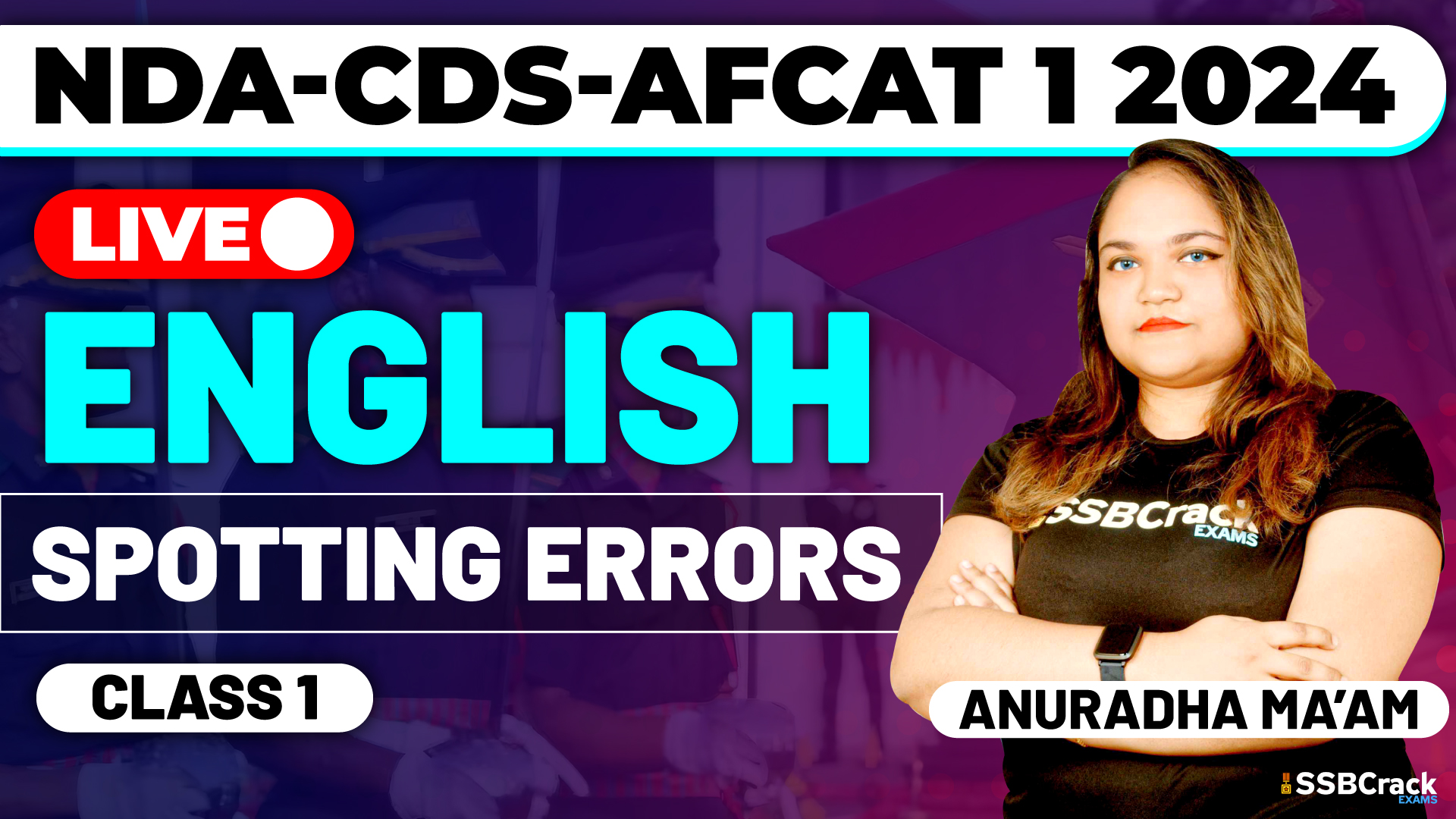In the realm of competitive exams like the National Defence Academy (NDA), Combined Defence Services (CDS), and Air Force Common Admission Test (AFCAT), the English section is a formidable challenge. Among the various topics tested, “Spotting Errors” stands out as the most critical and demanding. To excel in this section, a deep and thorough understanding of English grammar rules is essential. One of the fundamental pillars of mastering Spotting Errors is having a firm grip on the rules of nouns.
Why Noun Rules Matter
Nouns are the building blocks of sentences. They are the words that name people, places, things, or ideas. Understanding the rules governing nouns is vital for several reasons:
- Grammar Accuracy: Spotting Errors questions often revolve around the correct usage of nouns. Knowing noun rules helps you identify grammatical errors swiftly and accurately.
- Sentence Structure: Nouns play a pivotal role in determining sentence structure. Knowledge of these rules ensures that your sentences are well-constructed and grammatically sound.
- Vocabulary Enhancement: A strong grasp of noun rules can expand your vocabulary, as it enables you to recognize and use nouns in various forms and contexts.
- Effective Communication: Whether in written communication during exams or in oral communication during interviews, a good command of nouns ensures that your message is clear and concise.
Important Rules of Noun
Let’s delve into some of the most important and exam-specific noun rules that can help you ace the Spotting Errors section in NDA, CDS, and AFCAT exams:
- Singular and Plural Nouns: Understand the rules for forming plurals. Generally, you add “s” to form plurals, but irregular nouns may change entirely (e.g., child – children, man – men).
- Countable and Uncountable Nouns: Recognize the difference between nouns that can be counted (e.g., book, car) and those that can’t (e.g., water, knowledge). Use appropriate quantifiers like “a,” “an,” “some,” or “much” accordingly.
- Collective Nouns: Collective nouns represent a group of people, animals, or things. They can be singular or plural depending on the context (e.g., The team is playing well. The team are wearing different uniforms).
- Possessive Nouns: Learn the rules for forming possessive nouns, which indicate ownership. Generally, add ‘s to a singular noun and ‘ to a plural noun (e.g., John’s book, the soldiers’ bravery).
- Noun Gender: In some languages, nouns have gender (e.g., masculine, feminine, neuter). In English, gender is usually indicated by the pronoun used (he, she, it).
- Noun as Subject and Object: Understand the role of nouns as subjects (doers of the action) and objects (receivers of the action) in a sentence. Match the verb form accordingly.
- Noun Agreement: Ensure that nouns and their associated verbs and pronouns agree in terms of number and gender. Mismatched agreement is a common error.
- Compound Nouns: Familiarize yourself with compound nouns, which consist of two or more words (e.g., toothbrush, breakfast). Understand when to use hyphens or spaces between the words.
Conclusion
Mastering the rules of nouns is not just a prerequisite for acing the Spotting Errors section in NDA, CDS, and AFCAT exams; it is an essential skill for effective communication in English. These rules provide a strong foundation for understanding sentence structure, grammar, and vocabulary. By investing time in learning and practicing noun rules, you equip yourself with a powerful tool to navigate the challenges of competitive exams and excel in your English language skills. So, embrace these rules, practice rigorously, and pave your way to success in the NDA 1 2024, AFCAT 1 2024, and CDS 1 2024 exams.







